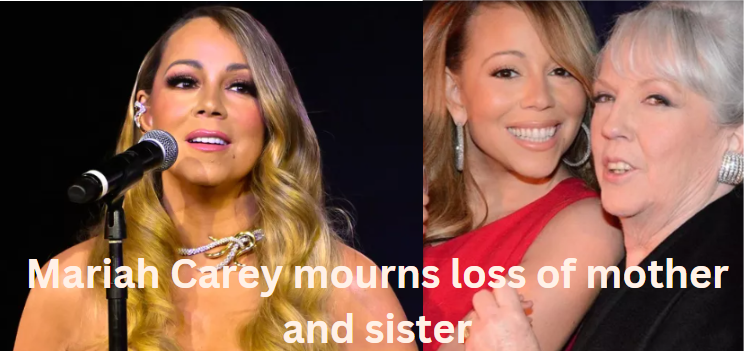Taeil departs NCT after sexual offense allegations

South Korean singer Taeil, a member of the popular K-pop group NCT, has left the band following accusations of an unspecified sexual crime. This announcement was made by his agency, SM Entertainment, on August 28, 2024.
Details of the Departure
SM Entertainment stated that they were informed about the accusations against Taeil, whose full name is Moon Tae-il, and recognized the seriousness of the situation. The agency decided that he could no longer continue his activities with NCT. In their statement, they mentioned that Taeil is fully cooperating with the police investigation. The specific nature of the allegations has not been disclosed, and the police have declined to comment on the case. Reports indicate that the allegations stem from an incident involving an adult female victim and that the investigation is being conducted by the Bangbae Police Station in Seoul.
Reaction and Context
The news of Taeil’s departure has sparked widespread attention, with SM Entertainment’s announcement quickly garnering millions of views on social media. The K-pop community has expressed shock and concern over the allegations, especially given the group’s popularity and the recent controversies surrounding other members of NCT 127.Taeil’s exit from NCT comes after he had already faced challenges, including a serious motorcycle accident in August 2023 that required surgery and led to a hiatus from group activities. His departure marks a significant change for NCT, which debuted in 2016 and has since gained international acclaim for its innovative music and diverse subunits.
Implications for NCT and K-pop
The K-pop industry has been under scrutiny regarding issues of accountability and the treatment of artists. SM Entertainment has previously faced criticism for how it handles allegations against its artists. In this case, the swift decision to remove Taeil from the group reflects the agency’s recognition of the seriousness of the allegations, even before the investigation concludes. This incident also highlights ongoing discussions about the pressures faced by K-pop idols, including public scrutiny and the impact of legal issues on their careers. The K-pop community is known for its passionate fanbase, which often rallies behind their favorite artists, but allegations of misconduct can lead to significant backlash and changes in public perception.
Taeil’s departure from NCT due to accusations of an unspecified sexual crime marks a significant moment in the K-pop landscape. As the investigation unfolds, it remains to be seen how this will affect both Taeil’s career and the future of NCT. The situation underscores the complexities and challenges within the K-pop industry, particularly regarding accountability and artist management.
SM Entertainment has faced various challenges and controversies in the past, particularly concerning the management of its artists and handling allegations against them. Here’s an overview of how the company has dealt with similar situations:
Historical Context of SM Entertainment’s Management
SM Entertainment, one of the leading companies in the K-pop industry, has been involved in numerous scandals and legal disputes over the years. Some notable incidents include:
- TVXQ Lawsuit: In 2009, three members of TVXQ, Jaejoong, Yoochun, and Junsu, filed a lawsuit against SM Entertainment regarding their 13-year contracts, which they deemed unfair. This case led to significant changes in the Korean entertainment industry, including the establishment of a maximum contract length of seven years.
- Han Geng’s Departure: In the same year, Han Geng of Super Junior also sued SM for similar reasons, citing unfair treatment and contract length. His departure highlighted ongoing issues regarding artist treatment within the company.
- EXO Members’ Lawsuits: In 2014-2015, several Chinese members of EXO, including Luhan, filed lawsuits against SM, alleging discrimination and unfair payment practices. These cases further emphasized the need for better management and support for international artists.
- Jessica Jung’s Exit: In 2014, Jessica Jung left Girls’ Generation amid conflicts related to her personal business ventures and group activities. Her public comments about being removed without warning raised concerns about communication within the agency.
Recent Complaints and Artist Relations
In recent years, SM Entertainment has continued to face complaints from its artists regarding management practices:
- Red Velvet’s Joy: Recently, Joy from Red Velvet expressed dissatisfaction with the company on social media, highlighting a lack of communication and support regarding their music releases. Her comments reflect ongoing tensions between artists and management.
- Taeyeon’s Frustration: Taeyeon, a member of Girls’ Generation, has also publicly voiced her frustrations with SM regarding delays in her solo projects, indicating a pattern of dissatisfaction among artists regarding their treatment and the company’s responsiveness.
Handling Allegations and Public Relations
When allegations arise, SM Entertainment typically issues public statements to address the situation:
- Swift Action: In cases like the recent departure of Taeil from NCT due to serious allegations, SM Entertainment has acted quickly to distance the group from the controversy. They announced his exit and emphasized cooperation with law enforcement, which shows a commitment to addressing serious issues promptly.
- Public Statements: The agency often releases statements to clarify their position and reassure fans about the well-being of their artists. This practice aims to maintain public trust and mitigate backlash.
Challenges in Crisis Management
Despite these measures, SM Entertainment has struggled with maintaining a positive public image amid ongoing controversies:
- Artist Support: The company has faced criticism for not adequately supporting its artists during crises, leading to feelings of neglect among some members.
- Legal Battles: Ongoing legal disputes with former and current artists can tarnish the company’s reputation and create uncertainty for fans and stakeholders.
To Sum up
SM Entertainment’s handling of allegations and artist relations has evolved over the years, but challenges remain. The company has made efforts to address issues quickly and maintain communication, yet the recurring complaints from artists highlight the need for continued improvement in management practices. As the K-pop industry grows, so does the scrutiny on how companies like SM Entertainment manage their talent and navigate controversies.











